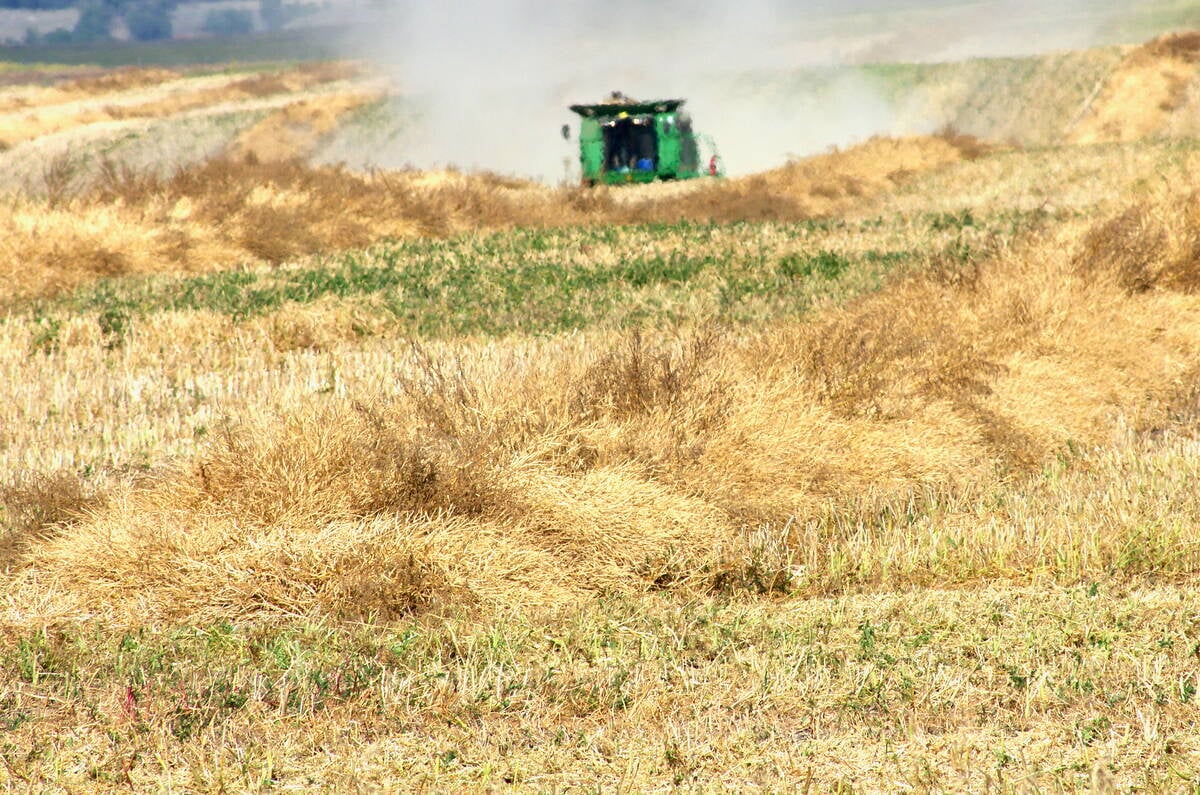BSE redux
The 2005 BSE file had an inauspicious beginning when two more domestic cases of BSE were discovered. The cases generated additional cattle industry fears of prolonged cattle and beef export restrictions. The United States announced its first domestic case of BSE in June. In July, the border reopened to Canadian cattle younger than 30 months. At the end of the year, Japan announced the reopening of its border to beef from cattle younger than 21 months.
two AD HOC
FARM AID packages
In late March, the government announced $1 billion in farm aid, a round number later calculated to be somewhat less in actual cash. Provinces rejected federal calls to match 40 percent of the total in aid dollars, claiming inability to afford it. In late November, another $755 million in ad hoc help was announced for grains and oilseeds producers. Throughout the year, complaints and calls for changes to the Canadian Agricultural Income Stabilization plan, initially designed to help eliminate the need for ad hoc programs, were common.
Read Also

Manitoba searches for Plan B on canola oil exports
A new report explores Manitoba’s current canola oil trade and possible alternative markets to the U.S.
WEird WEATHER slows harvest
Spring rains slowed seeding in many areas and prevented seeding in many parts of Manitoba. That province also saw an unusually high number of summer storms. A cool prairie summer gave way to a reasonably long fall, again spotted with rain in most regions. Harvest of a larger than average crop was completed and many grain dryers were put to good use.
GRAIN HOPPER CAR DEAL reached
Negotiations took 10 years, but the Farmer Rail Car Coalition inked a deal in late November to purchase 12,000 grain
hopper cars from the federal government. The deal is touted as a way to enhance rail competition and benefit farmers.
Centennial
CELEBRATIONS
Alberta and Saskatchewan celebrated centennial status in 2005. It was the year of the reunion and homecoming as many towns and villages in both provinces held special events.
RISING
INPUT COSTS
By the middle of the seeding season, the price of natural gas was up nearly six percent while farm fuel costs rose 10 percent over the previous year. Average prices for herbicides also
increased and strong global demand for steel had a
corresponding impact on farm machinery costs.
two TRADE
DISPUTES SETTLED
A binational panel set up under the North American Free Trade Agreement ordered the removal of 11.2 percent wheat import tariffs first imposed by the United States in 2003. The North Dakota Wheat Commission appealed the June decision but on Dec. 12, the panel rejected its appeal.
In another Canadian trade victory, the U.S. International Trade Commission found in March that Canadian exports of live hogs to the United States did not injure the American swine sector. Penalties on Canadian hog exports were nullified and penalties imposed since October 2004 would
be reimbursed.
LOW crop PRICES, POOR QUALITY
Grain and oilseed production was generally above average across the Prairies but quality and prices were down. Despite increased production, the value of crops was tempered by low commodity prices and poor quality. In some areas, combining continued into late November and low-grade cereal crops with sprouting, discolouration and low test weights were the norm. Statistics Canada reported in December that prices for most field crops were down and that Canadian farmers expected a significant decline in returns from field crops.
biofuel PLANS TAKE SHAPE
Canada took steps toward development of a renewable fuel sector. In July, the federal government announced that five companies would share $46 million in funding to expand the ethanol industry. In Western Canada, Husky Oil received $10.4 million for a new plant in Minnedosa, Man., and Permolex Ltd., received $1.1 million to expand a facility in Red Deer. The biodiesel industry made strides in the United States but progress in Canada was less evident. The canola and biodiesel industries continued to show interest in expansion and urged the federal government to provide more incentives.
building NEW SLAUGHTER PLANTS
Two investments to expand Western Canada’s hog slaughter capacity were announced in 2005. In Winnipeg, Quebec-based packer Olymel joined forces with Hytek and Big Sky Farms to announce construction of a $200 million slaughter facility capable of processing an estimated 2.25 million hogs per year. Construction was scheduled to begin in 2006. In Saskatoon, Maple Leaf Foods announced plans to build a $110 hog slaughter plant to replace the Mitchell’s facility. The Saskatchewan government kicked in grants worth
$35 million. As well, various initiatives saw construction and expansion of dozens of smaller beef slaughter facilities across the West.














